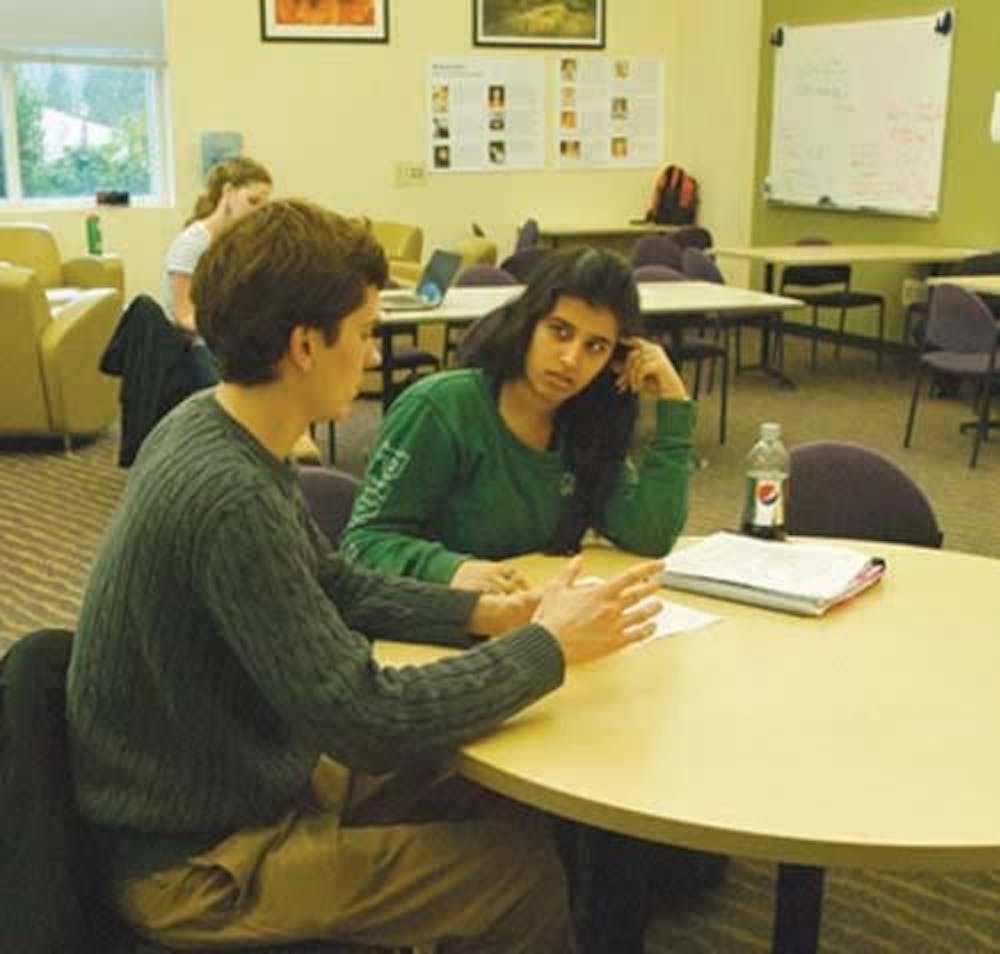Over half of the Writing Center’s budget has already been spent on last semester
(Kayla Wong | The Beacon)
By Kathryn Walters, Staff Writer -- walters14@up.edu
Due to increased demand and efficiency problems, the Writing Center has spent over half of its year-long budget, which has resulted in reduced conference hours for Writing Assistants.
Professors at UP, especially those who teach Biblical Traditions and Culture, require students to visit the Writing Center for their term papers, which increased demand at the Writing Center by a third last semester.
"A higher demand means we burned through our budget faster," Lars Larson, director of the Integrated Writing Program, said. "So we have to be more efficient to bring in the numbers."
The Writing Center's $24,000 budget is used to pay writing assistants, allocating about half of the budget for each semester. However, $14,700 has already been used.
Now that over half the budget has already been spent, the Writing Center has had to make some changes in how the writing assistants work. Writing assistants were able to sign up for up to eight hours a week to work in the Writing Center, where they could conduct appointments with students. However, their hours have been limited to four.
"Being capped at four makes it tough," junior and Writing Assistant Matthew LaVere said. "It's a semester's amount of work to get this job, and it gets cut."
Larson has encouraged writing assistants to cancel their hours for the week if no one signs up for an appointment, so the writing assistants are not paid for unnecessary hours, which will help lower the budget.
According to Larson, last semester there were 142 potential hours combined between all the writing assistants per week, where writing assistants could schedule their appointments to meet with students. During the busiest week last semester there were only 59 hours of demand, where writing assistants conducted scheduled appointments with students or took walk-in appointments in the Writing Center. This realization prompted Larson to cut down on hours that were not needed.
"We don't really need 142 hours a week, that's bleeding money," Larson said.
This semester, Larson reduced the available hours to 100, which reflects the writing assistants' reduced conference hours in the Writing Center.
Last semester, students did not use 40 percent of conference hours at the Writing Center. Although an improvement from 50 percent in the past, writing assistants, instead of working with scheduled appointment holders, saw walk-ins, worked on Writing Center projects, wrote conference reports and worked on their own homework. This reduced efficiency, which Larson has tried to reverse.
"We're trying to get the word out that this is hurting our service," Larson said.
Students who never showed up to their scheduled Writing Center appointments also affected the budget. When this happened, writing assistants who were stood up were paid anyway because it was a scheduled appointment, which reduced the budget even further.
Until last school year, each of the Biblical Traditions and Culture classes had their own writing intensive tutors, which assisted each class' writing skills based on the individual requirements of the professor. When the University slashed that system, demand for the Writing Center increased.
"The WIT's (writing intensive tutors) would just copyedit papers and learning would not be collaborative at all," Larson said. "The Writing Center is based on the notion that the writer be in control of their own paper."
Many writing assistants also conducted appointments outside of their conference hours in the Writing Center, which resulted in additional compensation.
Junior Valerie Schiller has been a writing assistant since her sophomore year, and while she understands the reason for limiting the amount of hours she can work, she thinks that veteran writing assistants should have more hours available to them.
"I feel like people that have been here longer should get a bit of an incentive to stay longer," Schiller said. "I think that it's a pretty big issue."
Larson said he tried to distribute the hours fairly among the writing assistants.
"I want them to think of it as a collective enterprise rather than individual competition," Larson said.








